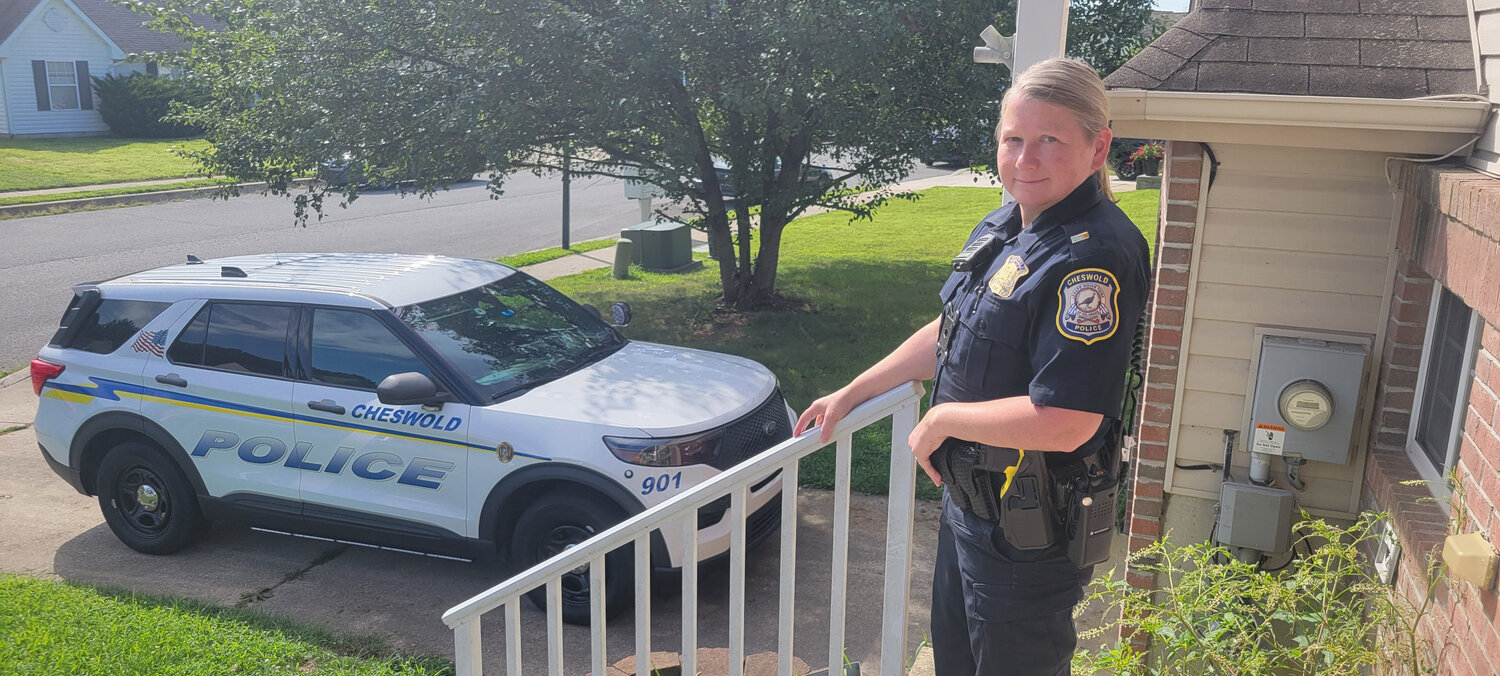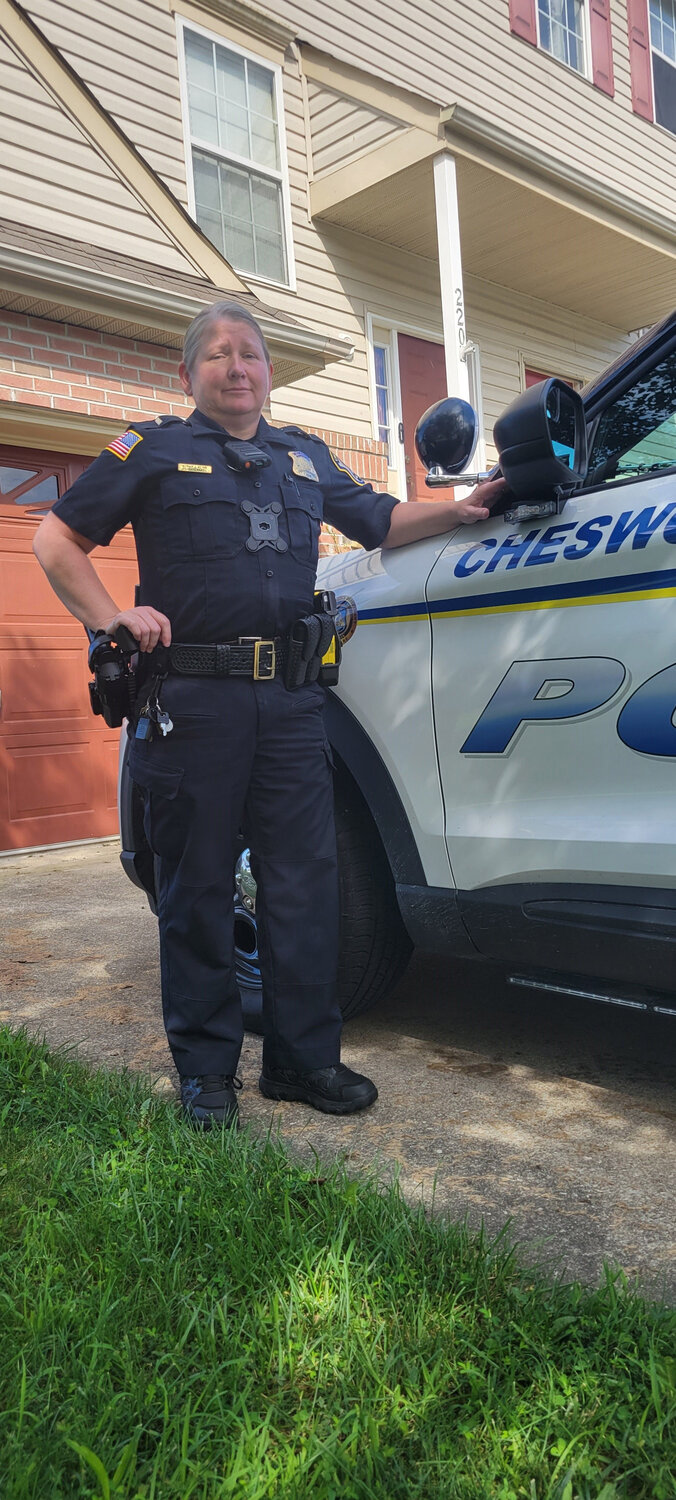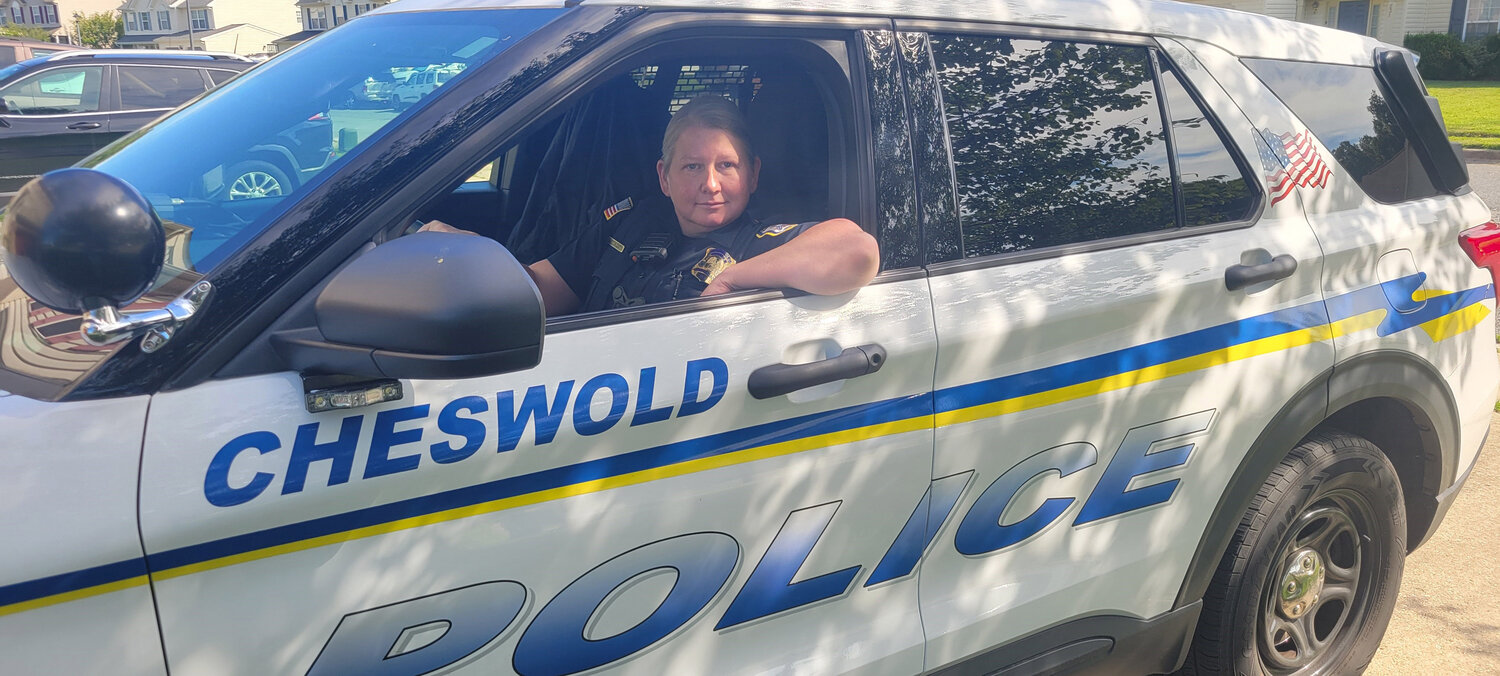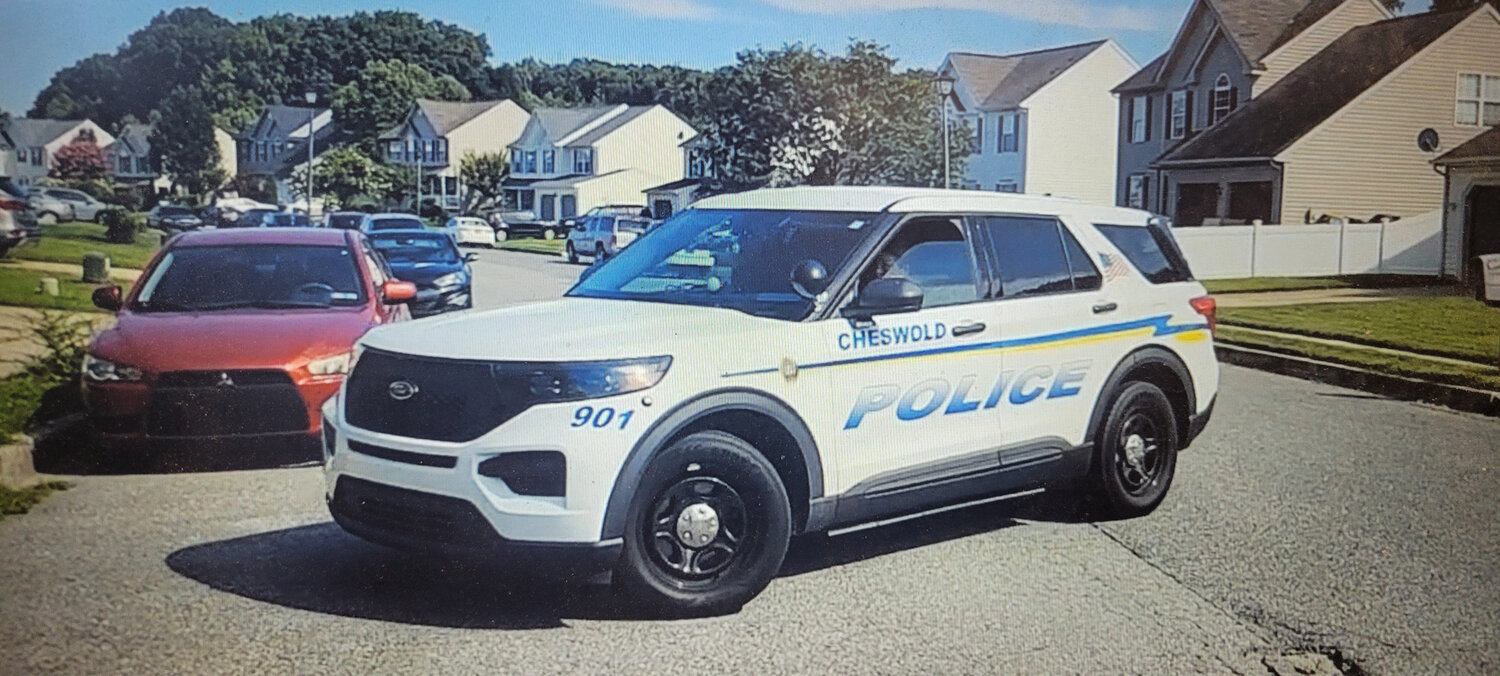Delaware police officers, vehicles stick together
Various incentives accompany take-home policies
Increased police visibility and a crime deterrent.
Enhanced officer productivity and greater employee morale.
The Milford Police Department has witnessed these incentives and more since it began its take-home vehicle program in spring 2023.

You must be a member to read this story.
Join our family of readers for as little as $5 per month and support local, unbiased journalism.
Already a member? Log in to continue. Otherwise, follow the link below to join.
Please log in to continueNeed an account?
|
Delaware police officers, vehicles stick together
Various incentives accompany take-home policies
MILFORD — Increased police visibility and a crime deterrent.
Enhanced officer productivity and greater employee morale.
The Milford Police Department has witnessed these incentives and more since it began its take-home vehicle program in spring 2023.
Spokesperson Sgt. Timothy Maloney said officers “take pride and ownership of their vehicles, and it has drastically reduced fleet vehicle costs.”
“Full-time, sworn officers who have successfully completed their probationary period, are in good standing and live within a 35-mile radius of the city of Milford limits are eligible for a take-home vehicle,” he explained.
“It is the policy of the department to distribute take-home vehicles in a fair and equitable manner to officers that are in good standing within the department, but no officer is entitled to a take-home vehicle.”
Further, the initiative serves as an attraction while recruiting potential employees and while keeping officers on staff, Sgt. Maloney said.
“A take-home vehicle program can be an incentive to the recruitment and retention of police officers,” he continued. “It increases officer morale, as well as officers take pride and ownership of their take-home vehicles.
“This was the purpose and driving force behind then-Chief Kenneth Brown’s initial program proposal back in November 2021, when he approached Milford City Council to ask for approval of the program.”
There are some limitations, however. Milford officers are prohibited from using their agency vehicles for personal use when off duty, the sergeant said.
While Milford officers are enthused about this perk, other departments don’t have it — there’s no such program in Middletown, and only Smyrna’s K-9 handler can take a vehicle home.
New incentive in Cheswold
The Cheswold Police Department began offering take-home vehicles May 6.
Chief Christopher Workman said the mayor and Town Council discussed recruitment and retention before they approved the program.
It benefits the agency, he said, because “it allows officers to respond in a marked patrol vehicle if called in for any reason when off duty.”
“It reduces wear and tear on the vehicle. If the vehicle is in possession of the officer, they are required to maintain the vehicle, and it reduces the mileage. Since cars are used by one officer, it is not running ... on the road in service for long periods of time.”
Take-home cars are available to all full-time patrol officers, but Chief Workman said they are not mandatory.
“The only requirement is that it’s available for full-time officers (living) within 15 miles of the department. Anything further is at the approval of mayor and council,” he said.
Cheswold has a fleet of five cars, and most have been purchased in recent years. The oldest is a 2020 Chevrolet Tahoe, the chief said. At this point, there are two full-time officers on staff, one of whom brings a vehicle home, he added.
“Take-home cars are most definitely a perk that is wanted by many new officers, but it’s not limited to them. (Some of) the more seasoned officers like the availability of having that option, to take the wear and tear off of their own personal vehicles,” Chief Workman noted.
Similar to Milford, such vehicles can’t be utilized for personal reasons in Cheswold.
Nevertheless, Lt. Susan Kline, who lives in Dover, said the incentive is a big help.
“I’ve been doing this job for just around 16 years now, and this is the first time I’ve been able to actually take a vehicle home,” she said. “I’m able to take care of it more. It’s just so much better. People in my neighborhood see it, and they have respect, and they actually come up and talk to me a lot more, knowing who I am.”
Same benefits in Harrington
Harrington police officers are assigned a patrol vehicle they can take home upon graduation from the police academy or when they are hired.
Chief Adam Gillespie agreed that there are a number of benefits.
“Many agencies have a take-home program; however, there are still several in the state that do not, so it is an added benefit to recruit officers,” he said. “With a vehicle being assigned to one officer who is responsible for it, they take pride in their car and make sure that it is cleaned and maintained.”
Plus, he said, “it also increases the longevity of the vehicle, as agencies with pool vehicles, the car is constantly on the road, adding mileage and hours on the engine. A pool vehicle may only last two to three years.
“(But) our oldest vehicles in the fleet are in their ninth year of service and still mechanically sound.”
Harrington’s initiative has been in place since about the late 1980s. “It has since been included as a benefit in the collective bargaining agreement,” the chief said.
Under most circumstances, he continued, officers can’t use the take-home vehicles for personal activity. However, “outside of work, take-homes can be used if an officer is taking college classes or going to a gym, but a supervisor needs to know about it.”
In addition, “if an officer is in an on-call capacity and has some sort of business to take care of — a family function or something of that nature — they would be permitted to take their department vehicle with them.”
Chief Gillespie said other uses would be determined on a case-by-case basis.
“If any other reason would arise, and an officer needed to use their vehicle for personal business, they would need to contact a supervisor, and the request would be evaluated.”
DSP guidelines
For Delaware State Police troopers, “Vehicles provided by the agency must be utilized in the performance of police duties,” spokesperson Lt. India Sturgis said. “Troopers are responsible for ensuring that the vehicles are used appropriately and in accordance with agency guidelines.”
Troopers are eligible for take-home vehicles upon completing their two-year probationary period, she continued.
“The take-home vehicle policy offers several benefits, including increased visibility of law enforcement presence in communities, faster response times in emergencies and the ability for troopers to remain prepared and ready for duty at all times,” Lt. Sturgis stated. “This policy enhances the overall efficiency and effectiveness of our operations.”
She also pointed out the perk of longer-lasting vehicles.
“It extends the life cycle of our fleet. Continuous use of vehicles — 24/7 throughout the year — can lead to increased maintenance issues. By allowing vehicles to be taken home, we reduce the wear and tear associated with high-intensity usage.”
There’s also the recruiting aspect.
“It is a valuable benefit that can attract prospective candidates by offering them the convenience and readiness that comes with having a dedicated patrol vehicle,” she said.
Plus, off-duty troopers can quickly use their vehicles if a police-related emergency arises.
“This allows them to respond quickly to emergencies or other situations requiring immediate attention, ensuring public safety and a rapid law enforcement response.”
Lt. Sturgis shared the limitations of the take-home program, as well.
“Troopers are not permitted to use their assigned vehicles for personal purposes,” she said. “The vehicles are intended for official police duties, including traveling to and from duty stations or other necessary locations for assignments and investigations.”
However, she continued, “it is understood that incidental personal stops, such as picking up a prescription on the way home from work, may occur and are allowed, as long as they are kept to a minimum.
“Once a trooper is off duty and has arrived at their final destination, the vehicle cannot be used for personal use.”
Similar responsibilities in Camden
The Camden Police Department “allows for take-home vehicles if you live within a reasonable distance from Camden and within the state,” Chief Marcus Whitney said, adding that “vehicle maintenance and cleanliness is the responsibility of the officer.”
Every officer is permitted a take-home vehicle, with the capability of rapid responses being a key benefit, the chief said.
Additionally, “there is also an omnipresence effect, which is an unquantifiable benefit, especially with the manpower shortages in policing,” he said.
“Then, there is the wear and tear. A single vehicle that is shared amongst officers is running pretty much 24/7. The maintenance costs are much greater.”
The incentive of a take-home possibility is enough for Camden police to have it listed on the agency’s hiring flyer, Chief Whitney added.
“This is definitely viewed as a recruiting incentive,” he said, “(but) the take-home vehicle can be revoked for punitive reasons should it become necessary.”
Away from the job, there’s an expectation for “officers to utilize the vehicles for response or police-related activity when off duty, should the need arise,” Chief Whitney said.
Also, “the officers may utilize vehicles for nonpolice work within the jurisdictional limits of Camden. In doing so, they must abide by policy and be prepared to stop and assist, make an arrest, etc., thereby bringing them fully on duty.
“This goes back to the omnipresence aspect, which again, is extremely helpful with the almost negligent manpower shortages in policing.”
Other towns’ programs
In Dagsboro, town administrator Cindi Brought said all town officers take police vehicles home.
Meanwhile, the Seaford Police Department does not have a full-fledged take-home policy for its 26 sworn officers. But Deputy Chief Michael Rapa said the arrangement is “modified.”
“What that means is that (if) officers ... are working their regularly scheduled shift and are coming back the following day for a regularly scheduled shift, they have an option,” he said. “They can take their patrol car home.”
For the New Castle County Police Department, officers can use their take-home vehicles for nonpolice purposes. However, spokesperson Senior Cpl. Richard Chambers said there are restrictions.
“Officers must adhere to specific rules and obligations when using their vehicles while off duty,” he said, adding that all the agency’s officers are assigned a take-home car.
“However, not every officer takes their vehicle home, depending on their residence,” he noted. “Officers living in New Castle or Kent County can bring their vehicles home, while those residing outside these areas must obtain written permission from the chief of police.”
Also, he said, “The chief of police reserves the right to revoke, suspend or restrict this privilege if an officer violates any policy, rule or regulation.”
Staff writer Glenn Rolfe contributed to this story.
Members and subscribers make this story possible.
You can help support non-partisan, community journalism.
Other items that may interest you





 By
By 



